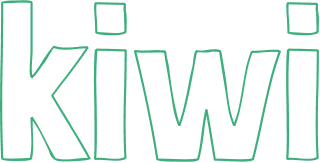sdslabs / Kiwi
Programming Languages
Projects that are alternatives of or similar to Kiwi
A minimalistic in-memory key value store.
Overview
You can think of Kiwi as thread safe global variables. This kind of library comes in helpful when you need to manage state accross your application which can be mutated with multiple threads. Kiwi protects your keys with mutex locks so you don't have to.
Head over to kiwi.sdslabs.co for more details and documentation.
Installation
Kiwi requires Go >= 1.14
Kiwi can be integrated with your application just like any other go library.
go get -u github.com/sdslabs/kiwi
Now you can import kiwi any where in your code.
import "github.com/sdslabs/kiwi"
Basic usage
Create a store, add key and play with it. It's that easy!
store := stdkiwi.NewStore()
if err := store.AddKey("my_string", "str"); err != nil {
// handle error
}
myString := store.Str("my_string")
if err := myString.Update("Hello, World!"); err != nil {
// handle error
}
str, err := myString.Get()
if err != nil {
// handle error
}
fmt.Println(str) // Hello, World!
Check out the tutorial to learn how to use Kiwi.
Benchmarks
Following are the benchmarks comparing Kiwi with BuntDB on a MacBook Pro (8th gen Intel i5 2.4GHz processor, 8GB RAM).
❯ go test -bench=. -test.benchmem ./benchmark
goos: darwin
goarch: amd64
pkg: github.com/sdslabs/kiwi/benchmark
BenchmarkBuntDB_Update-8 11777931 96.6 ns/op 48 B/op 1 allocs/op
BenchmarkBuntDB_View-8 23310963 47.1 ns/op 48 B/op 1 allocs/op
BenchmarkKiwi_Update-8 10356004 115 ns/op 48 B/op 3 allocs/op
BenchmarkKiwi_Get-8 21910110 53.2 ns/op 0 B/op 0 allocs/op
PASS
ok github.com/sdslabs/kiwi/benchmark 6.216s
Following are the key differences due to which Kiwi is a little slow:
- BuntDB supports transactions, i.e., it locks the database once to apply all the operations (and this is what is tested).
- Kiwi supports dynamic data-types, which means, allocation on heap at runtime
(
interface{}) whereas BuntDB is statically typed.
The above two differences are what makes Kiwi unique and suitable to use on many occasions. Due to the aforementioned reasons, Kiwi can support typed values and not everything is just another "string".
There are places where we could improve more. Some performance issues also lie in the implementation of values. For example, when updating a string, not returning the updated string avoids an extra allocation.
Contributing
We are always open for contributions. If you find any feature missing, or just want to report a bug, feel free to open an issue and/or submit a pull request regarding the same.
For more information on contribution, check out our docs.
Contact
If you have a query regarding the product or just want to say hello then feel free to visit chat.sdslabs.co or drop a mail at [email protected]
Made by SDSLabs

